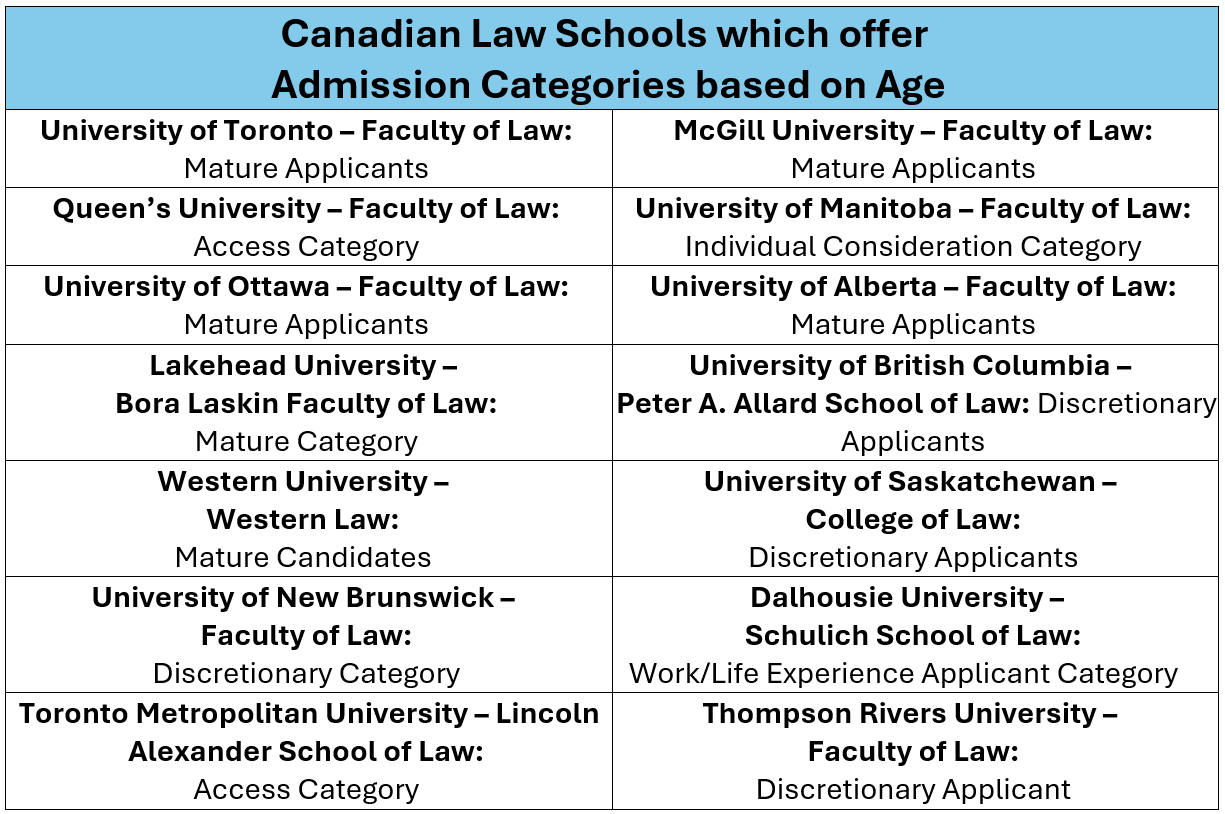
Is becoming a lawyer at 40 worth it? Find out in this article. See what steps to take in enrolling as a non-traditional student

Have you reached a certain age and want to shift careers into law? Do you wonder if becoming a lawyer at 40 is still possible?
In this article, we’ll discuss the possibility — plus the advantages and challenges — of studying law in your midlife. Find out which law schools offer a category for more mature applicants and how to apply to these programs. Get tips on how to highlight your real-world experience amidst a crowd of younger law students.
Becoming a lawyer at 40 years old or older is not a one-of-a-kind phenomenon; there are many law school enrollees who are way beyond their years and still want to pursue their dream. Even though the average age of law students in Canada is 25 years old, no law school has set up an age limit which prevents older people from enrolling. In fact, many law schools accept a wide range of students from different backgrounds. This includes mature applicants, working professionals, and people under special circumstances.
When applying to a law school, older applicants will still follow the same requirements but have a special consideration when it comes to the admission process.
Here are the steps in becoming a lawyer at 40 years old:
These steps are discussed in more detail below. Before we get into that, watch this video to assure you that studying law at an older age is still possible:
If you’re ready to take on law school, here’s a list of law schools in Canada, including their admissions process, tuition fee rates, and other details.
Canadian law schools have several admission categories that applicants can choose from. Here are some of the common categories:
Here’s an initial list of the Canadian law schools which do offer a mature category or access category based on age. Not all law schools offer these admission categories, so check with your law school of choice first.

This list may change as more law schools may offer the mature category in the future.
When it comes to the specific requirements under the mature or similar categories, you must also check each law school’s requirements, as they may differ from one another. Check out our guide on Canadian law school requirements for a quick overview.
Here are some of these common requirements to take note of when applying to a law school under their mature category:
Certain law schools would define those who can be included under their mature (or similar) category through a set age limit.
For example, the University of Manitoba defines a mature applicant as someone who’s 26 years old and above.
The University of Alberta has set 35 years old as their standard for mature applicants. Others do not set a specific age for eligibility of the mature category.
Read more about the University of Alberta in our guide on law schools in Alberta.
To be considered as a mature applicant, you’ll need to be employed for a certain number of years after your high school or undergraduate studies. Usually, law schools would require that you have at least five years of non-academic experience, either from high school or undergraduate studies.
These experiences do not have to be consecutive; your working or non-working experience may have gaps in between. Some examples of these non-academic experiences include:
Even though law schools include in their mature categories those who have had difficulty in finishing college, some would still require some level of education.
Most Canadian law schools require that you complete one of the following:
However, some law schools require you to meet the general eligibility requirements for education. This means that you must have finished a three- or four-year undergraduate degree, just like in a general admissions category.
Most law schools place more weight on your practical experience than your academic performance. As such, law schools would require that you submit a résumé, along with your cover letter, when applying under the mature category or similar.
Law schools would then provide guidelines on how your cover letter and résumé should appear and what they should contain. Since you’ve worked for a long time after your undergraduate studies, you can use your résumé and cover letter to show off your unique skills and abilities.
Here are some tips when drafting your cover letter and résumé towards becoming a lawyer at 40:
Looking for inspiration? Read this story about an Indigenous 45-year-old grandmother who went to law school. She graduated and won the Abella prize!
When applying under the mature category or its counterpart, your Law School Admission Test (LSAT) score is still required. This will not be heavily considered by the law school. Instead, it will look at your non-academic achievements in judging whether to accept you or not.
If you plan to take the test soon, read our guide on how to prepare for the LSAT.
What do you do if your preferred law school doesn’t offer an admission category for applicants above 40?
Your alternative would be to apply under their general admissions category. Most law schools that don’t have a mature or access admissions category say that their holistic admissions process considers your age along with your other requirements. In other words, your age is not the only deciding factor.
One example is the University of Windsor – Windsor Law. Their admission process has seven admission criteria where mature applicants will be viewed not just based on their age, but also on other achievements and standards. For more on the University of Windsor, read our guide on the best law schools in Ontario.
Meanwhile, the University of Victoria – Faculty of Law does not offer a specific mature category. They say that age is not a factor in their admissions process.
After successfully entering law school, you’re one step close to becoming a lawyer at 40. Here comes the hard part: surviving and graduating from law school.
While you may have had the advantage when you applied using the mature admissions category, you and your classmates are now treated equally inside the classroom.
According to its curriculum, it takes 3 years to finish law school in Canada. But you would have to add another year to do the licensing process of becoming a lawyer as provided by your provincial or territorial law society.
When you’ve prevailed over the tough admission process, an equally hard three years in law school, and the one-year licensing process, you’re now officially a lawyer in Canada!
To help you assess if becoming a lawyer at 40 is still worth it, here are some advantages and disadvantages to studying law and becoming a lawyer in midlife:
More on these pros and cons are discussed below. You can also check out our page on Canadian legal education to guide you on the current trends when studying law at this age.
Depending on their admissions policy, your preferred law school may look at your age positively or negatively. But currently, most law schools prefer to mix mature students with regular or general admission students, plus other students from other admission categories.
Also, if you have a low LSAT score/s or GPA from your undergraduate studies, your age would be an additional consideration. This includes your work background and other professional experience, to make up for your low LSAT and GPA.
With years of experience in the field where you’ve worked, learning the law in that industry becomes relatable. You can easily connect with what the law says, and how it applies in real-life situations.
What you’ve learned beyond the classroom before entering law school is valuable not just to you, but also to your classmates and your professor. By providing them with a perspective that is different from the books, your class becomes more engaging, and discussions are more grounded.
Adjusting to being back in university might be frustrating. Your younger classmates may be intimidated by you, and there’s this generational gap in between.
Yet, there’s nothing that can’t be solved by good socialization, keeping your feet on the ground, and asking for help whenever you need it. Aside from your peers in law school, it’s not bad to reach out to your professor, to your administration officers, and other support groups.
Becoming a lawyer at 40 years old (or above) is and has always been possible. Success stories from those who went to law school beyond the typical law student’s age are inspiration for those who want to still pursue their dream.
Law schools have paved the way to make this achievable. There are admission categories to choose from, but they are still subject to certain requirements and eligibility.
To help you decide whether to take this journey are the pros and cons of studying and becoming a lawyer at a later age. As they say, age is just a number, and law school is just right around the corner.
Do you know anyone who became a lawyer at 40? What inspired you the most about their journey? Let us know in the comments